




Congratulations to the esteemed Newfoundland Symphony Orchestra (NSO) on the launch of their 2024-2025 season. The NSO remains a cornerstone of Newfoundland and Labrador’s cultural arts scene, captivating with diverse programming that embraces pop culture, broadening appeal across generations. In 2023-24, the NSO engaged communities by offering in-school and virtual programs for students and free online concerts for seniors, enriching lives through music. As they begin this new season, the NSO honours maestro Marc David for his remarkable 30-year career, shaping the orchestra’s legacy and leaving a lasting impact on Newfoundland and Labrador’s cultural landscape. The Government of Newfoundland and Labrador proudly supports the NSO, recognizing its pivotal role in enriching our province’s arts and culture sector.
On behalf of the City of St. John’s, I extend warm greetings to the Newfoundland Symphony Orchestra as you embark on your 2024/2025 season with the inspiring theme of “Resonance.” This season holds special significance as you celebrate the remarkable 30-year career of Maestro Marc David. His dedication, passion, and leadership have left a lasting mark on the NSO, resonating deeply with audiences in our city and beyond. The arts play a crucial role in enriching our lives, fostering creativity, and bringing people together. The NSO’s commitment to delivering exceptional musical experiences reflects the vibrant cultural landscape we’re fortunate to have in St. John’s. Your performances not only entertain but also inspire and uplift, creating lasting moments. As we celebrate this milestone season, my sincere gratitude goes to the musicians, staff, volunteers, and supporters of the NSO. Your tireless efforts ensure the symphony thrives and resonates with audiences of all ages. I’m confident that this season will be filled with memorable performances that leave a lasting impact. Congratulations to Maestro Marc David on his illustrious career, and best wishes to the NSO for a successful and resonant 2024/2025 season.
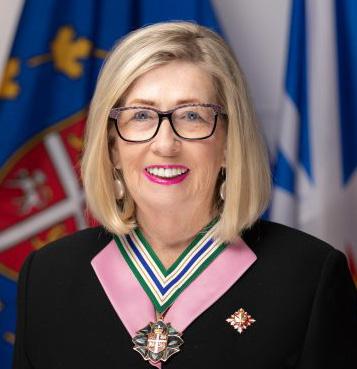
Joan Marie J. Aylward, O.N.L., B.N., R.N. Lieutenant Governor of NL

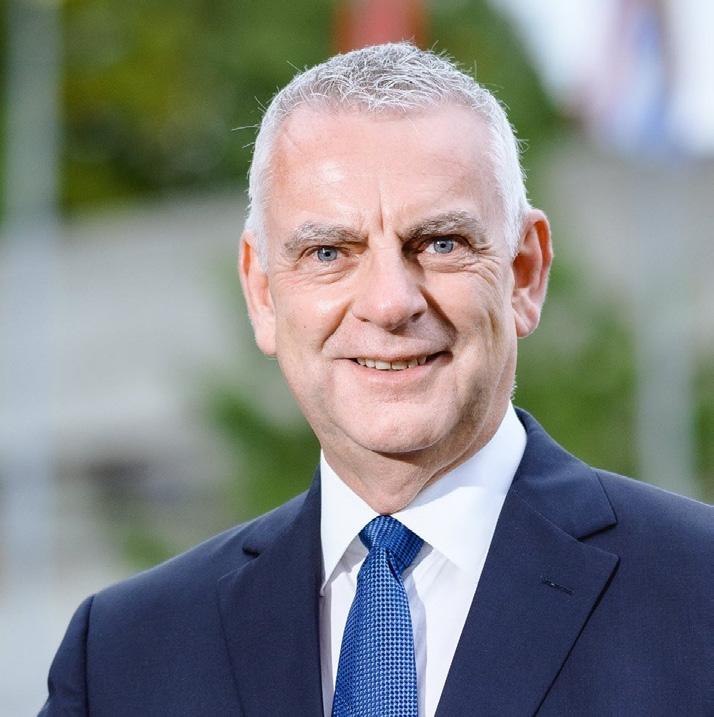
Danny Breen Mayor of St. John’s
As Honorary Patron, it is my pleasure to extend best wishes to the Newfoundland Symphony Orchestra for the 2024/2025 season. Once again, the NSO will delight audiences with a season full of performances for many different musical tastes. This year’s theme is “Resonance”. Indeed, the NSO resonates throughout our province and contributes much to our rich artistic culture. Now with 84 members, the NSO has come a long way since its inception as a fledgling ensemble in 1962. This season also marks the final one for Principal Conductor Maestro Marc David. For 30 years the Orchestra has been guided by his steady hand. We join with you in celebrating his contributions, and his leadership with the NSO. Thank you Maestro Marc David for all the joy you have brought for audiences over your years with the NSO. I hope you will enjoy each performance this year. To the musicians, staff, crew, and all who play a part within the NSO, I wish you the best for your season, which I am confident will resonate with pride for audiences throughout the province. We are so proud of you, and we celebrate your continued success as you begin your new season in the Year of the Arts. Bravo!

Sunday, November 24 ,2025 • D.F. Cook Recital Hall, MUN School of Music
Presented by IdeaFactory
J. Haydn
G. Bacewicz
String Quartet op. 33, no. 3 “The Bird”
1. Allegro moderato
String Quartet no. 3
1. Allegro ma non troppo
H. Wolf Italian Serenade
A. Glazunov
L. Beethoven
String Quartet no. 3, op. 26
4. Finale: Une fête Slave
INTERMISSION
String Quartet no. 18, op. 3
1. Allegro
2. Andante con moto
3. Allegro
4. Presto
We acknowledge the province of Newfoundland and Labrador as the traditional territory of diverse Indigenous groups, and we acknowledge with respect the diverse histories and cultures of the Beothuk, Mi’kmaq, Innu, and Inuit of this province. We strive for respectful relationships with all the peoples of this province as we search for collective healing and true reconciliation and honour this beautiful land together.





The award winning Atlantic String Quartet is composed of the principal string players of the Newfoundland Symphony Orchestra. The current members of the quartet are Heather Kao and Nancy Case-Oates – violins, Kate Read – viola, and Nathan Cook – cello. Hailing from Newfoundland, the UK and the US, they bring rich and diverse experience to their performances. In 2020, the ASQ won the MusicNL Classical Artist of the Year award for its debut CD, produced by Mark Fewer, of the Ravel and Bliss String Quartets.
In addition to leading their sections in the ever-blossoming NSO, the quartet presents its own recital series, programming a diverse selection of both standard and lesser-known repertoire. The group regularly performs works by Canadian composers including Dinuk Wijeratne, Andrew Staniland, Jocelyn Morlock, and Kellie Marie Murphy, and is committed to showcasing works by women and members of other underrepresented groups. The ASQ is an integral part of the creative life of the St. John’s community and is known for its versatility and ability to work with music and musicians from multiple styles and genres. They have shared the stage with renowned classical musicians like Charles Richard-Hamelin, Angela Cheng, Ofra Harnoy, Shauna Rolston, Mark Fewer, and acclaimed Inuk classical vocalist and composer Deantha Edmunds. Equally comfortable with non-classical genres, the ASQ has performed with artists and groups such as Cory Tetford, Duane Andrews, The Once, Artistic Fraud of Newfoundland, Mary Barry, and Ron Hynes. They also recently joined forces with fabulous jazz musicians Bill Brennan and Juno award-winner Florian Hoefner to perform Chick Corea’s “Lyric Suite” for sextet.
As well as in and around St. John’s, the quartet regularly performs throughout the province. Corner Brook, Woody Point, Bonavista’s Garrick Theatre, Cupid’s Theatre, and Eastport have all hosted recent performances by the ASQ, and the group appears regularly at the Cape St Mary’s concert series. Members of the quartet teach at Memorial University of Newfoundland as well as run their own teaching studios. They coach and conduct young ensembles, and regularly adjudicate at festivals.
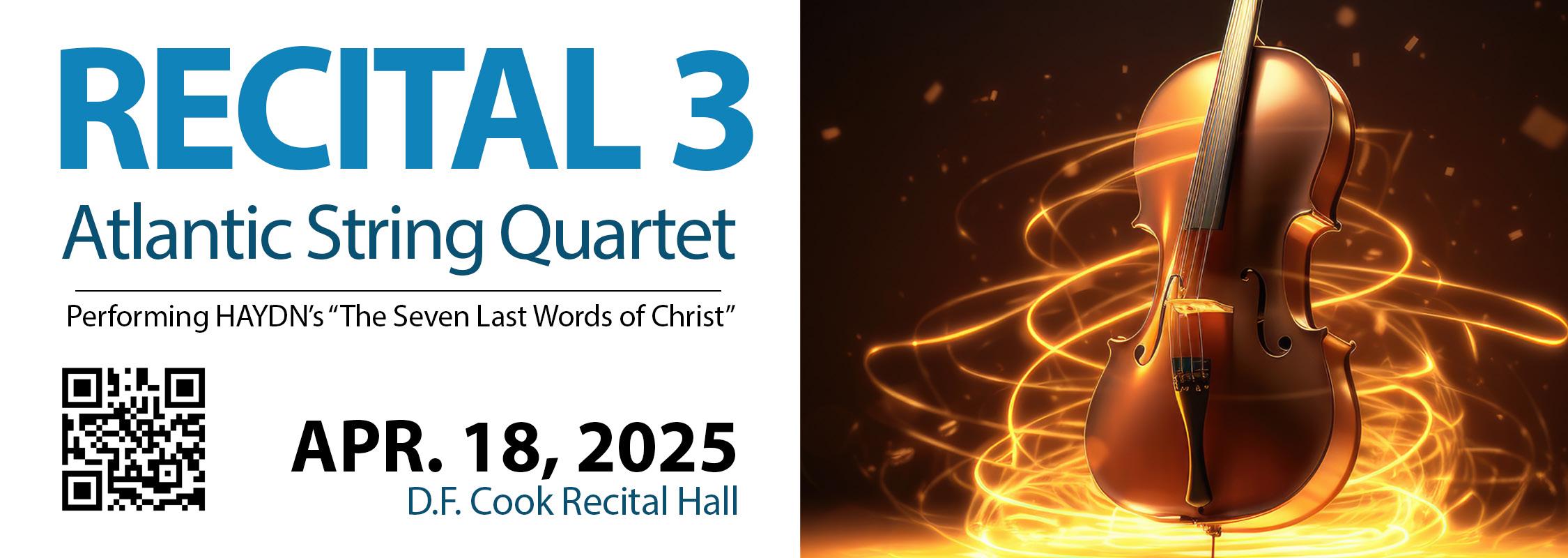

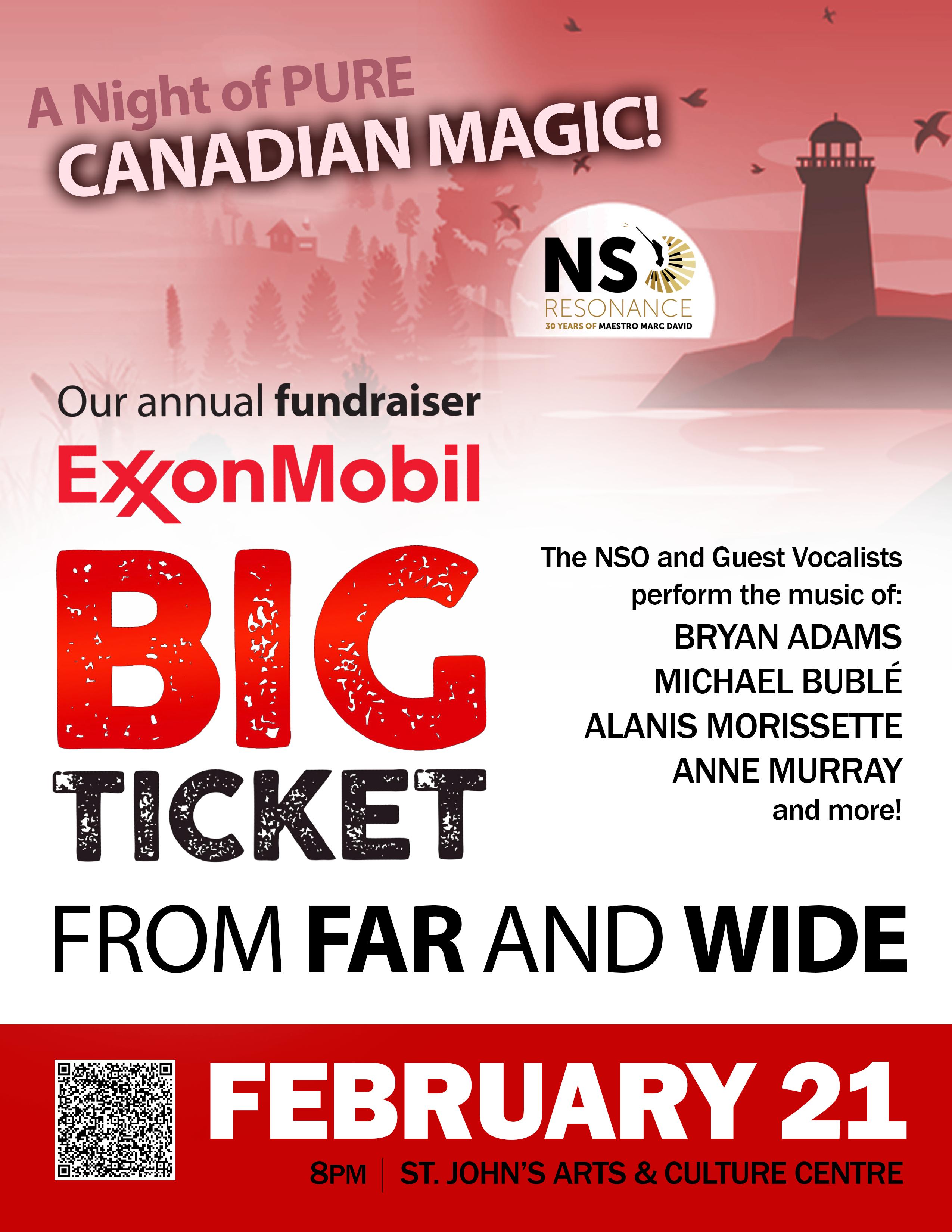
Joseph Haydn: String Quartet in C major, Op. 33, No. 3, published in 1781, marked a turning point in the development of the string quartet. Subtitled “The Bird,” Op. 33, No. 3 earned its nickname from the chirping, avian-like figures in the first violin part throughout the opening movement. Haydn described these quartets as written in a “new and special manner,” characterized by a conversational equality among the instruments and playful wit, hallmarks of the Classical style.
The opening Allegro moderato introduces the quartet’s cheerful character, with lively arpeggios and staccato motifs evoking birdsong. Haydn’s light, transparent textures allow each instrument to shine. Audiences should listen for the delicate interplay between the violin’s melodic lines and the grounded, supportive voices of the viola and cello. This movement’s charm exemplifies Haydn’s blend of humor and structural sophistication.
Grażyna Bacewicz: String Quartet No. 3 - Composed in 1947, Grażyna Bacewicz’s Third String Quartet reflects her distinctive synthesis of neoclassicism and modernism. Written shortly after World War II, this quartet captures both vitality and introspection, showcasing her command of string textures and dynamic contrasts.
The first movement, Allegro ma non troppo, is lively yet tightly structured, marked by propulsive rhythms and intricate counterpoint. Angular melodic lines intertwine with sharp harmonic dissonances, giving the music a sense of restless energy. This movement highlights Bacewicz’s skillful use of rhythmic drive and dynamic variety to create drama and tension. Listeners should pay attention to the bursts of energetic passages, punctuated by moments of lyrical introspection. The music’s forward momentum and occasional folk-like gestures reflect Bacewicz’s Polish heritage and her commitment to forging a modern yet accessible musical voice.
Hugo Wolf: Italian Serenade, composed in 1887, is one of Hugo Wolf’s most beloved works for string quartet. Written at the height of his creative powers, it blends charm, lyricism, and humor, all within a compact single movement. Inspired by Italian folk music and literary themes, this piece evokes a romanticized, sunlit vision of Italy. The music opens with a jaunty, playful theme in the first violin, accompanied by pizzicato figures in the lower strings. Wolf’s writing is light and effervescent, reminiscent of a serenade performed under moonlit skies. As the piece progresses, the themes are passed seamlessly among the instruments, showcasing Wolf’s skillful handling of quartet textures. Listen for the rich interplay between the graceful melodies and the buoyant, dance-like rhythms. Despite its brevity, the Italian Serenade leaves a lasting impression with its effortless charm and vibrant character.
Alexander Glazunov: String Quartet No. 3 in G major, Op. 26, composed in 1886, is a testament to his deep love for Russian folk traditions and his ability to merge them with the elegance of Western classical forms. The finale, titled “Une fête Slave” (A Slavonic Festival), is a jubilant conclusion to the quartet, brimming with energy and nationalistic pride. This movement showcases Glazunov’s gift for vibrant orchestration and melodic invention. It opens with a lively, dance-like theme that evokes a celebratory folk gathering. Spirited rhythms, bold harmonies, and virtuosic interplay among the instruments create an atmosphere of unrestrained joy. The music alternates between fiery energy and moments of lyrical beauty, maintaining a festive spirit throughout. Listen for the driving syncopations and the colorful use of Slavic-inspired melodies, which bring the movement—and the entire quartet—to a rousing, triumphant close.

Ludwig v. Beethoven - String Quartet no. 3 in D major, op. 18 no. 3, composed in 1799, is part of a set of six quartets that Beethoven wrote for Prince Joseph Franz Maximilian Lobkowitz. These quartets mark Beethoven’s early exploration into the string quartet form, which he would continue to develop throughout his career. Despite being labeled as the third in the set, it was actually the first one Beethoven composed. The Op. 18 quartets show Beethoven’s admiration for the works of Haydn and Mozart while also exhibiting his emerging individual style.
The quartet in D major is known for its light, lyrical qualities and formal clarity. Beethoven’s use of traditional forms is evident, yet he injects his own inventiveness and emotional depth. The interplay between the instruments is dynamic and conversational, a hallmark of Beethoven’s chamber music. This piece not only highlights Beethoven’s compositional skill but also his ability to convey a wide range of emotions through the intimate medium of the string quartet.



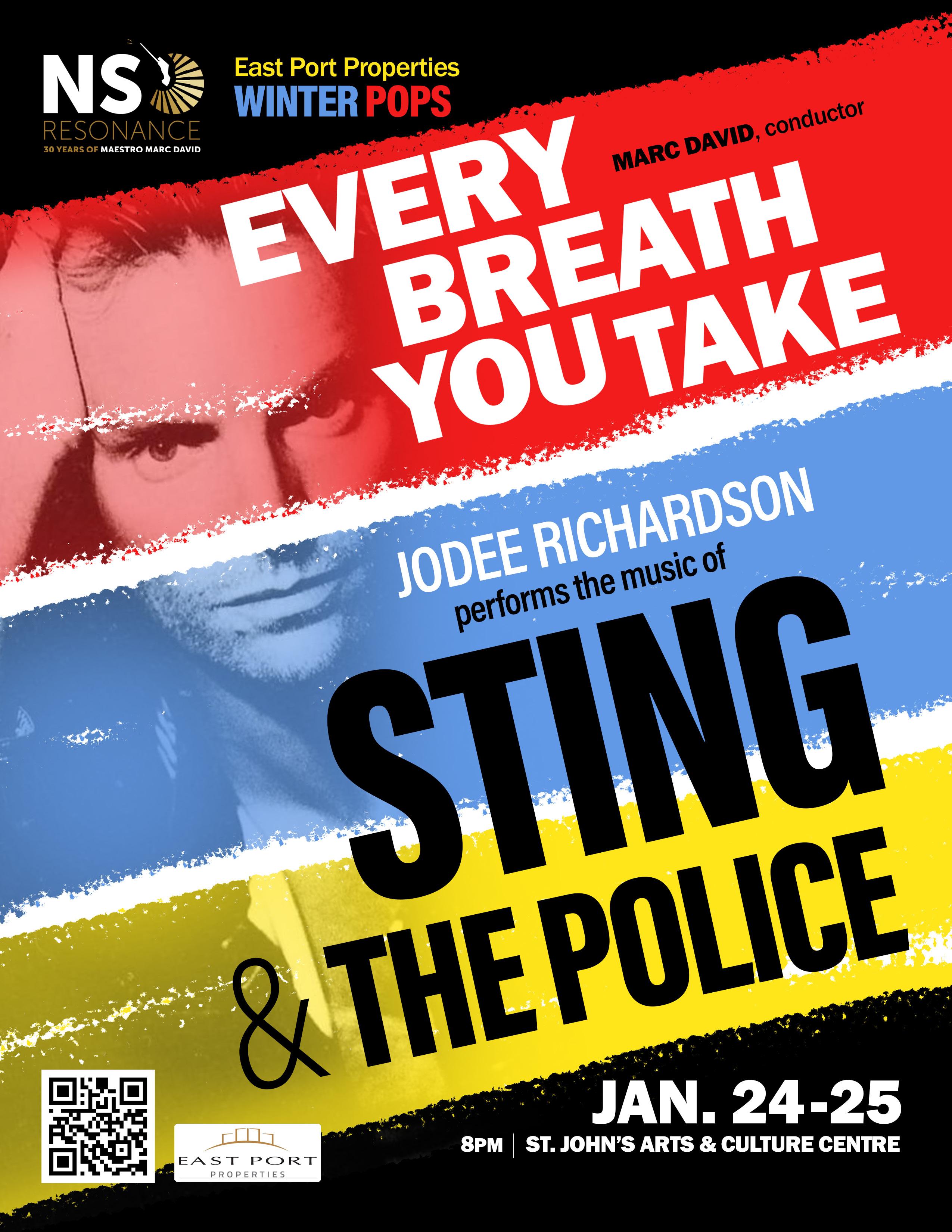
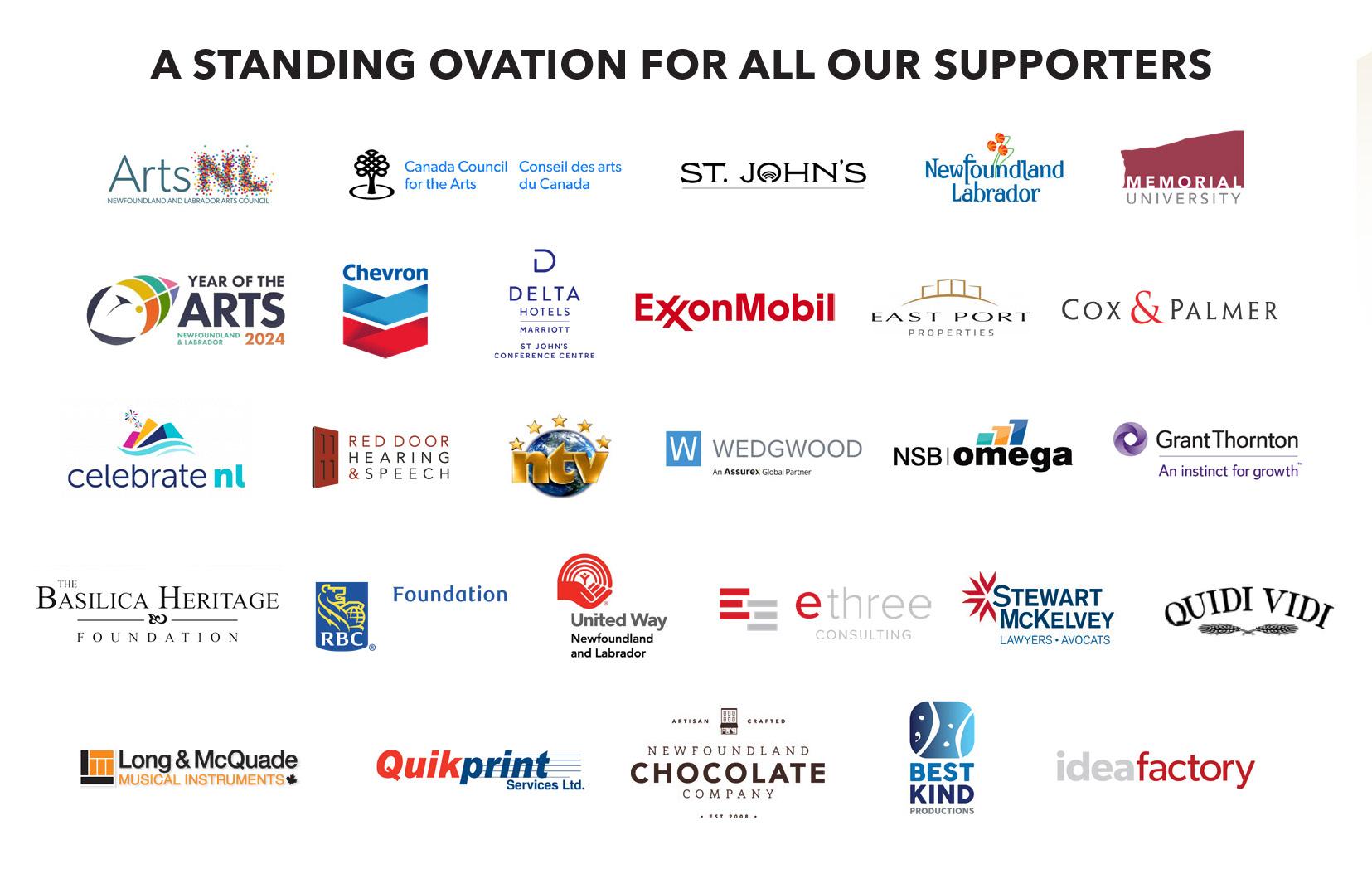

Lynn Ann Pye, Patron Relations Manager
Jennifer Brennan, Education & Outreach Coordinator
Maria Penney, Marketing & Development Manager
Dominic Greene, Personnel Manager
Steve Power, Production Manager/Video Production/Editing
Jenny Griffioen, Librarian
Kyle McDavid, Graphic Designer
N SO Bo ard
T om Hickey (Chair)
Ian Penne y (Vice-Chair)
Paul McDonald (Past Chair)
Douglas Wright (Treasurer)
C onor Stack (Corporate Secretary)
Jessica Chapman
Heather McKinnon
Michelle Davis
Andrea Rose
Alana W alsh-Giov annini
Aimee Letto
Robert Decker
Jennifer Massey
Jing Xia
Karen Bulmer
Amy Collyer-Holmes
Elizabeth Wright
Robert Thompson
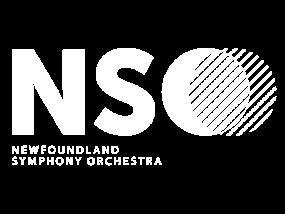
P.O. Box 23125 St. John’s, NL A1B 4J9
709-722-4441
nso@nsomusic.ca
